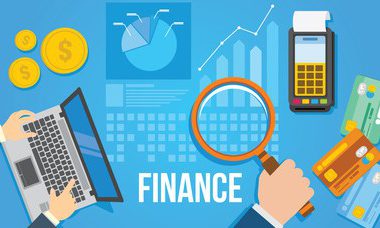
by admin | Bankruptcy, Consumer Proposal, Credit Counseling, Uncategorized

It is all too easy to sink deeper and deeper into the proverbial ‘debt trap’ thanks to uncontrolled spending, however, all is not lost as given time as well as life style changes it ‘is’ quite possible to take control of your runaway financial obligations and live a (relatively speaking) debt free life.
But the question remains as to how to go about doing that? A reputable credit counselling service or agency may be able to help. They will both advise as well as educate you and in other ways help you in every way possible to make sure that you not only get out of the ‘proverbial debt trap’ but change your spending patterns to such an extent that it does not happen ever again.
Here are a few tips that, with the active guidance and advice of your chosen credit counsellor that would not only help take care of your problems in the short term but in the long run act as guide posts to make sure you do not repeat the same vicious cycle.
- Houston: We have a problem
When it comes to taking care of runaway debt, you have to look in the mirror and firmly understand that your debts did not accumulate on their own. But rather, they were a direct result of your very own spending patterns. The age old adage of “spend only what you earn yourself” does hold true to this day. Unfortunately, it’s not as easy as it looks, we all have desires and the quest to buy the latest LCD or LED 3D TV on a credit card that you know you are not in a position to afford , may well prove irresistible.
This is where financial discipline comes in, rather than taking a short cut, and using your credit card to buy that TV, it would be more productive to wait and save for it with your own money. (It just might make you feel better about yourself too)
2. No short cuts
You must keep in mind that a credit counsellor is not a magician and once you go to him all your financial problems will vanish like they have never existed. Remember, he is first and foremost an advisor. And ultimately, it is’ you’ who have to follow his advice for it do any good. You may well have to forgo many a luxury before you would be out of the woods.
3. Consult a professional before the problem even occurs
Before making a really large purchase (for example a car), it is advisable to take at least a few sessions with the credit counsellor you are most comfortable with. He or she will help you decide how much you can afford to shell out on credit and how much should be a lump sum payment, so that you don’t end up being at the beck and call of your creditors.
However, it is pertinent to note that ultimately it is ‘your’ personal responsibility to take care of your own loans. Failure to do so would hurt you more than any one else.

by admin | Bankruptcy, Consumer Proposal, Credit Counseling, Uncategorized

You must save more and spend less for a stable and secure financial future for both you and your loved ones” Few of us may not have heard of this well meaning advice given to us by our elders. Yet hardly anyone tends to follow these ancient words of wisdom. Of course, we do tend to give casual lip service to it every now and than, but following this advice is not an easy task per se. That is not to say we don’t ‘try’ to do so every time we are in a jam.
The following few pointers may help launch you on the part to financial solvency.
· If you must use credit cards use the least expensive ones
When procuring a credit card for yourself, shop around first and see which one has the least interest rate. Always remember, that some cards may be more expensive than others since some banks may prove costlier than others depending on the basket of services they provide. Don’t ‘buy’ into the advertising hype but check tariff rates first before acquiring and using a credit card.
· Use credit cards to ‘save’ money
You may also check out the discounts available with your preferred choice of credit card and use the ones that offer you the most discounts. If you use the discounts available with your card to shop at your favourite outlets and pay within the month, you may actually save money even as you are spending it.
· Live a balanced life
Balance is crucial for just about any type of reasonably good lifestyle. From eating to sleeping to working, every thing you do must be in harmony with your inner self and be in balance,. The same holds true for your finances as well. It is always important to save at least some of your earnings every month for the proverbial ‘rainy day.’ The amount may not be very large to begin with, but you have to make sure that your savings are as consistent as they can be and the amount saved is done so month after month. Year after year. Over the years you would have a sizable nest egg that you may be able to invest and so be able to earn from your hard earned savings.
· Debs should be paid of with your earnings
It is always better to buy from your own earnings rather than though credit, but if you have done so, try and tighten your belt and restrict your monthly expenses and pay from your running cash rather than dipping into your savings. This way your ‘nest egg’ remains secure and you would be able to live a relatively stress free life since you would always have more money in your account while remaining debt free.

by admin | Bankruptcy, Consumer Proposal, Credit Counseling, Credit Repair
 Saving is always better than spending if we are to have a viable and secure lifestyle. While most of us certainly do know this age old adage, yet seldom follow it, which unfortunately leads to our very obvious detriment. Yes, most of us have made sporadic attempts at saving our salaries and funds and do manage to do precisely that, only to splurge all over again and its back to ground zero. This holds eve truer if we have just survived a really bad debt trap. Once the debts have been repaid, we make a solemn promise with ourselves to never ever go down that road again. Only to fall down the same slippery slope because not having debts means we are financially free…. Free that is, to incur more debts, that is we go off on a spending binge.
Saving is always better than spending if we are to have a viable and secure lifestyle. While most of us certainly do know this age old adage, yet seldom follow it, which unfortunately leads to our very obvious detriment. Yes, most of us have made sporadic attempts at saving our salaries and funds and do manage to do precisely that, only to splurge all over again and its back to ground zero. This holds eve truer if we have just survived a really bad debt trap. Once the debts have been repaid, we make a solemn promise with ourselves to never ever go down that road again. Only to fall down the same slippery slope because not having debts means we are financially free…. Free that is, to incur more debts, that is we go off on a spending binge.
Think of it alone the lines of eating a healthy diet, till you have achieved your desired weight loss and can put on your old clothes with pride, you keep on dieting with grim determination. Once that has happened, you have no need to diet and you revert to your old eating habits. And before you know it you have ballooned and now pack even more weight than you did even before you started dieting in the first place.
Here are a few pointers to help ensure that you are able to save your money, rather than being in debt.
1. If you have debts, you need to pay them off first thing!
Yes, paying debts is a very, very important part of your financial cycle, but would it not be nicer if you never had debts to begin with? Owing people money and having them ask you to pay back consistently is not really a nice feeling, is it? However, if you have savings, then even if you were in debt all you would need to do would be to dip into your savings and get rid of your debt, once and for all.
2. Save something for a rainy day
Always try and save at least 12% of your total monthly earnings irrespective of what your earning actually may be. Here the key buzz word is ‘consistency.’ If you save for a few months, only to blow away all your savings on the latest model 7.1 surround sound system, than should there be a real emergency that electronic gadget would not be of much use. However, doing so for years would mean a sizable nest egg that you may then invest and thereby earn from your savings. This way, you would be able to buy from the ‘earnings from your savings’ rather then taking loans that you could ill afford to pay.
Conclusion
Yes, it is not easy to curb your expenses and live on only a portion of your earnings, month in month out. You may have to restrict fine dining to a bare minimum and even cut down on your entertainment related activities. But, in the long run, this is the best way to live a relatively debt free life.

by admin | Bankruptcy, Consumer Proposal, Credit Counseling, Uncategorized

Not all of us have what it takes to spend within our means, and therefore before we know it, we are head over heels in debt.
However, there is a way around this problem. And, that is ’budgeting’, i.e. allocating budgets to all your important needs as well as those that are not on the top of the priority list. This way you would be able to make sure that all of your wants and desires are taken care of in order of their priority and nothing is ignored in the long run.
However, budgeting requires a certain amount of discipline and finesse. These are a few tips to help you learn this art:
1. Track your Spending Habits
This step is a sort of ‘prequel’ to budgeting. Before you commence making a budget try and track where all your hard earned money is actually going, remember every single dollar spent has to be clearly noted down, because in the long run, every individual penny eventually adds up. An innate understanding of your day to day expenditures would help you come up with a budget that is based on optimizing your spending patterns. Make sure that before making a budget, you track your expenditures for at least a four week period.
2. Set Realistic goals
When preparing a budget, think along the lines of a diet and exercise regimen. It is easy to make‘plans’regarding healthier eating habits and jogging four miles every day, but executing those plans means a harsh reality check. Even if you manage to do it for a few days, the chances are you will eventually stop. The same goes for your budget. If you curtail the expenses you incur on your hobbies and entertainment almost completely, the odds are you will succumb to your original spending habits in a big way. Try and cut down on your leisure spending by around ten percent per month (instead of going to the cinema three times a week, makes it twice).
Once you have successfully managed that, then make another cut of around the same percentage, and then don’t go below that for at least a few months.
3. Say no to Credit Card Spending
The thing about credit cards is that they allow you to spend money that you don’t really have. Use them often enough, and they are a sure fire recipe for landing you into debt or worse and before you know it, you are more concerned with making minimum payments than with taking care of your actual day to day needs in an attempt to keep the collection agents at bay.
The simplest means of avoiding credit card debt is to refrain from using them in the first place. However, they are indeed handy things to have in case of emergencies. If that is what has happened, make the payment of these cards a first line priority so that you would not be caught in a vicious debt trap.

by admin | Bankruptcy, Consumer Proposal, Credit Counseling, Uncategorized

Sometimes things happen that we have not planned for, (such as medical emergencies, loss of overall household income, excessive credit spending etc.) all of which lead to very high expenses and we have no idea how to stem the tide. Month after month, our bills become steadily bigger even as our income remains static.
This is truly a worrying development, and therefore before we know it, we are deeply in debt and there seems no way out of the quagmire.
But, there is light at the end of the tunnel. With a bit of fiscal discipline you just might be able to cope with those troublesome runaway expenses. Here are a few ideas:
· The ‘top three expense’ method
Runaway expenses are an acquired trait that, given time, can be dealt with effectively. It is simply a matter of finding out just what you biggest money drains may be.
As a rule, few people include basic necessities as their biggest expenses. Mostly the money is spent on leisure items and entertainment such as eating out, clubbing, and buying extra clothes, electronic appliances and the list goes on. Once you have figured out which categories are unimportant and yet a big drain on your resources, simply curb spending in those categories and before you know it, your runaway expenses would be firmly in control.
· Understand the importance of savings
Runaway expenses exist when we spend all (or even more than what we earn) on what ever we deem necessary.
The opposite of spending is saving i.e. spending less than we earn so as to create a ‘nest egg’ for any future eventualities. However, saving is easier said than done. If you think that you would be able to save any residual leftover amount from your monthly income, think again. If you are truly serious about saving your earnings, then deduct a certain amount at the ‘beginning’ of the month rather than waiting for the month to end. This savings amount should be separated from your regular expense money and preferably invested.
· Involve other people in your game plan
Many times curtailing excessive spending is a collective rather than an individual effort. If you feel that you cannot do it alone, it is always better to involve your friends, family and other people you trust into this initiative. Talk to your kids and explain to them why it is not possible to go out for outings as much as before. Take your spouse into confidence. And, if you are part of a free wheeling overspending crowd that laughs at budgets and savings plans, may be you should consider spending less time with them.
· Be wise – prioritise
This age old adage is still as refreshingly applicable today, as it ever was before. You simply have to set your priorities straight if you are ever going to get the better of your runaway expenses. Your hard money would continue to bleed if you decide that you simply must have that brand new smart phone that has been recently launched into the market. Such spending habits, when your financial means are clearly not enough to support them, could spell disaster in the long run.













